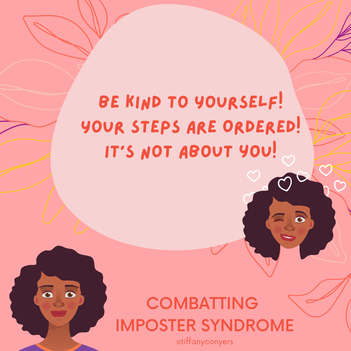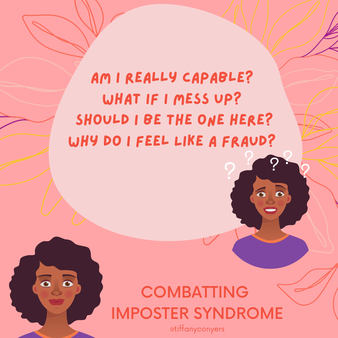|
These thoughts and feelings align with the term called "Imposter Syndrome". It is defined as a collection of feelings of inadequacy that persist despite evident success. 'Imposters' suffer from chronic self-doubt and a sense of intellectual fraudulence that override any feelings of success or external proof of their competence, according to the Harvard Business Review. I recently had moments where my "impostering" tried to overcome me. I was sitting at a "virtual" table with other practitioners who I admire giving feedback about ways to enhance services in our field. I found myself thinking of who else instead of me should be sharing their ideas, discrediting my ability, accomplishments and insight all at the same time. I compared my career, my practice history to those who I believed were more worthy of this opportunity. These thoughts led to the impostering that I believe plagues many of us. Once you recognize the signs, try out a few tips below to put that impostering in its place:  Here are 3 ways I personally combat imposter syndrome that seems to show up at the most inopportune times:
Can you think of any other ways to stop that IMPOSTERing in its tracks?
0 Comments
|
Author
I write to touch, motivate &, inspire. I bring mental health, professionalism, marriage, motherhood and spirituality to the dance. Archives
May 2022
Categories
All
|



 RSS Feed
RSS Feed